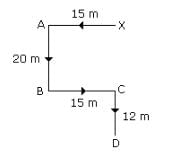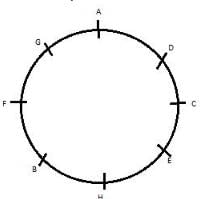Karnataka Judicial Services Mock Test- 6 - Judiciary Exams MCQ
30 Questions MCQ Test Karnataka Judicial Services Mock Test Series 2025 - Karnataka Judicial Services Mock Test- 6
To encourage voters' participation in electoral franchise, "National Voters Day" is observed in India on ___________:
Fifty books belonging to different subjects, viz., History (8), Geography (7), Literature (13), Psychology (8) and Science (14), are placed on a shelf. They are arranged in an alphabetical order subject to the condition that no two books of the same subject are placed together to so long as books of other subjects are available. Unless otherwise mentioned, all counting is done from the left.
Q.
Which subjects does the 40th book belong to?
Which subjects does the 40th book belong to?
What does the BNSS retain from the CrPC regarding senior citizens?
As per Sec.320(9) of the Code of Criminal Procedure, 1973, offences, other than those provided by Sec.320 of the said Code______
To promote harmony and the spirit of common brotherhood amongst all the people of India is
Starting from a point X Jayant walked 15 metres towards West, he turned to his left and walked 20 metres. He then turned to his left and walked 15 metres. He then further turned to his right and walked 12 metres. How far is Jayant from the point X and in which direction?
Directions :
(i) A, B, C, D, E, F, G AND H are sitting along a circle facing the centre.
(ii) D is the neighbour of A but not of H.
(iii) B is the neighbour of F and 4th to the left of D.
(iv) E is the neighbour of H and 3rd to the right of F.
(v) C is neither the neighbour of A nor of G.
Q. Which of the following pairs has three persons sitting between them?
A places men with firearms at the outlets of a building and tells Z that they will fire at Z if Z attempts to leave the building. A committed______
As per Order XXXIX Rule 3A of the Code of Civil Procedure, 1908, where an injunction has been granted without giving notice to the opposite party, the Court shall make an endeavour to finally dispose of the application within______ from the date on which injunction was granted:
Under what circumstances can a bad Constitution function effectively?
In this following question, four words have been given, out of which three are alike in some manner and the fourth one is different. Choose out the odd one out.
Any dispute regarding the violation of fundamental rights can be presented
Which of the following includes right to life mentioned under Art 21 of the constitution?
In this questions, a number series is given with one term missing. Choose the correct alternative that will continue the same pattern and fill in the black spaces.
Q. 24, 60, 120, 210, (____)
Which of the following defenses can a defendant raise in a suit for specific performance of a contract?
As per Section 147 of the Negotiable Instruments Act, 1881, every offence punishable under the said Act is______





















